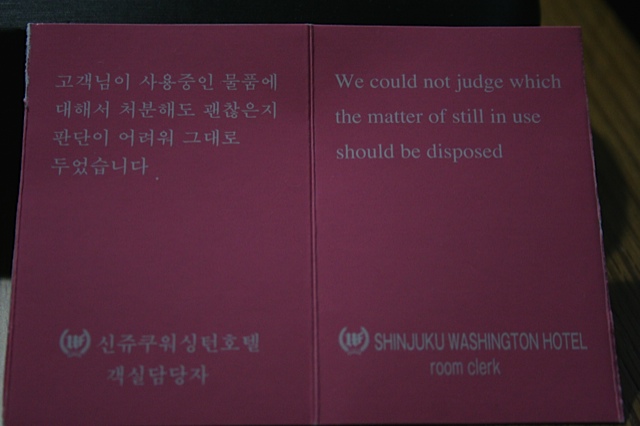Archive for Grammar
August 30, 2016 @ 2:29 pm· Filed by Geoffrey K. Pullum under Computational linguistics, Dialects, Grammar, Information technology, Language and computers, Language and technology, Links, Logic, Semantics, Silliness, Spelling, Syntax
A rather poetic and imaginative abstract I received in my email this morning (it's about a talk on computational aids for composers), contains the following sentence:
We will metaphorically drop in on Wolfgang composing at home in the morning, at an orchestra rehearsal in the afternoon, and find him unwinding in the evening playing a spot of the new game Piano Hero which is (in my fictional narrative) all the rage in the Viennese coffee shops.
There's nothing wrong with the sentence. What makes me bring it to your notice is the extraordinary modification that my Microsoft mail system performed on it. I wonder if you can see the part of the message that it felt it should mess with, in a vain and unwanted effort at helping me do my job more efficiently?
Read the rest of this entry »
Permalink
August 9, 2016 @ 7:48 am· Filed by Victor Mair under Diglossia and digraphia, Grammar, Writing systems
From B JS:
Some interesting uses of the Roman letter third person pronoun “TA” to sidestep genders associated with the characters tā 他 ("he") and tā 她 ("she"); it seems useful enough to perhaps become a permanent fixture in the language, in contrast to more faddish-seeming things like “duang” (see here and here). I kind of wish you could do this in English.

Read the rest of this entry »
Permalink
July 6, 2016 @ 4:28 pm· Filed by Barbara Partee under ambiguity, Grammar, Parsing
I was just reading along in the NYT today but had to pause at this sentence:
Mr. Trump has used bankruptcy laws to shield him from personal losses while his investors suffer.
I found myself puzzling over whether "him" was all right there or whether I wanted "himself", and even more puzzled that I was having trouble deciding. I would try out one, then the other, and the sentence kept shape-shifting on me. I didn't "feel" any particular ambiguity, and yet either choice would sound bad to me one second and good the next. Puzzled.
Read the rest of this entry »
Permalink
May 31, 2016 @ 11:51 pm· Filed by Victor Mair under Grammar, Lost in translation, Signs
From Florent Moncomble, a language academic in France:
My father came back recently from a trip to Japan and was intrigued by the following notice, which he found in his Tokyo hotel room one day. He gets by in English but could not make out its meaning and was wondering whether the fault lay with him or with the message — obviously the latter is the case. My interpretation is that this sign is left by the cleaning staff to apologise whenever they are unsure whether or not to dispose of (half-)used equipment such as towels and toiletries, and leave them in the room.

Read the rest of this entry »
Permalink
March 21, 2016 @ 7:42 pm· Filed by Victor Mair under Grammar, Style and register, Translation
This is a follow-up to "Again and again " (3/20/16), in which we looked at two different Mandarin words for "again", yòu 又 and zài 再, both of which are very common in the language, but which are used in different ways.
A commenter, Nathan, asked:
So if yòu 又 is associated more with the past and unwanted things, and zài 再 more with the future and wanted things, how do you say something future and unwanted –- "Never do that again!"?
I thought that was a good question, so I asked a number of my students and colleagues who are native speakers how they would say it, and was astonished at the wild variety of answers I received.
Read the rest of this entry »
Permalink
March 20, 2016 @ 12:30 pm· Filed by Victor Mair under Grammar
A note from Cullen Schaffer:
As a student of Mandarin, I'm fascinated by the fact that the language translates the word 'again' differently in these two cases:
He did it last month and yesterday he did it again (又).
He did it last month and tomorrow he'll do it again (再).
It seems bizarre to me to distinguish repetition in the past and future in this way. Can you or anyone else contributing to Language Log tell me (1) if this feature is unique to Mandarin or if there are parallels in other not-too-closely-related languages (2) how this distinction came to be a part of modern Mandarin?
Read the rest of this entry »
Permalink
January 24, 2016 @ 7:54 am· Filed by Victor Mair under Fillers and pause words, Grammar, Mannerisms, Speech-acts
From a colleague:
A friend who has little or no exposure to Chinese language and culture posted the following on Facebook:
In the office where I work, there is a Chinese grad student having a phone conversation. I have no idea what he's saying. But what's striking is that, every so often, he drops a phrase that sounds uncannily like the N-word.
No, I don't think he's bitching about American ethnic groups to his friends. It's probably shop talk in his research field. It's just the way my ears process what are probably the Szechuan or Mandarin equivalent of "I think…" or "Maybe…"
But two things are kind of striking. The first is how much my ears ping when the phrase happens. (I don't think they'd ping the same way if he dropped soundalikes for other Certain Words.) The second is that I start wondering how many fights or attacks may have happened because someone else overheard an equally mundane conversation, and thought that the word was being tossed around casually.
Any thoughts?
Read the rest of this entry »
Permalink
January 17, 2016 @ 8:14 am· Filed by Victor Mair under Grammar, Language and politics, passives
Taiwan has just concluded its general elections with some amazing results.
From a long-term resident in Taiwan;
A twenty-five point victory for the Democratic Progressive Party (DPP) in the presidential election!
Tsai Ing-wen: 56.1%
Eric Chu (KMT): 31.0%
James Soong (PFP): 12.8%
A huge, emotional crowd in Taipei for Tsai.
A very, very good day for the DPP, which will also control the Legislature for the very first time.
Read the rest of this entry »
Permalink
December 31, 2015 @ 12:25 pm· Filed by Victor Mair under Grammar, Prosody, Writing systems
It would seem natural that all languages have diminutives, but how diminutives are formed in different languages must vary considerably. In most cases that I'm aware of in Indo-European languages, the addition of a special suffix denoting smallness or connoting endearment is typical, but in other cases there are more complicated mechanisms at play. The most elaborate system of diminutives I know of is Russian, where common given names are not only made into diminutives in irregular ways, they are then profusely elaborated (with some forms indicating doubled diminutiveness): thus, Aleksander –> Sasha, Sashka, Sashen'ka, Sashechka, Sanya, Shura, Sashok. Keeping track of all these variants was always one of the biggest challenges I faced in reading Russian novels.
Read the rest of this entry »
Permalink
December 3, 2015 @ 7:02 am· Filed by Victor Mair under Borrowing, Grammar, Topolects, Writing systems
Andrew Peters noticed an interesting aspect of the concise little figure in this article: "Evolution of the first person pronoun in Japanese spoken language" (click to nicely embiggen). It claims to show which pronouns were in use in various eras (Nara [710–794], Heian [794–1185], Kamakura [1185–1333], Muromachi [1336–1573], Edo [1603–1868], Meiji/Taisho/Showa [1868-1989], and postwar). What Andrew discovered is that the two casual masculine pronouns ore おれ (俺) (this may even sound rude) and boku ぼく(僕) are, respectively, the oldest and newest pronouns in use today.
Read the rest of this entry »
Permalink
October 18, 2015 @ 3:59 pm· Filed by Victor Mair under Grammar, Morphology, Philology, Philosophy of Language, Phonetics and phonology, Silliness, Syntax, This blogging life
From an anonymous colleague:
I'm currently auditing Jennifer Houseman Wegner's class on Cleopatra. Today, in a Powerpoint lecture on Ptolemy IV, she showed the following quote from Edwyn Bevan's "A History of Egpyt under the Ptolemaic Dynasty": (Metheun, 1927, p.233)
"Agathocles and Agathoclea still, as before, ruled the king's [Ptolemy IV] corrupt affections. The palace swarmed with literary pretenders, poets, grammarians, whores, buffoons, philosophers."
Somehow put me in mind of Language Log.
Heavens! What a motley crew!
Read the rest of this entry »
Permalink
October 18, 2015 @ 7:06 am· Filed by Victor Mair under Announcements, Grammar, Writing systems
I am happy to report the publication of Jeroen Wiedenhof's A Grammar of Mandarin (Amsterdam, Philadelphia: John Benjamins, 2015).
This is a wonderful resource for anyone interested in Mandarin, both specialists and non-specialists alike. I recommend it highly particularly for general linguists who do not know any Chinese language but who want a reliable, well-organized, and linguistically savvy treatment of all aspects of Mandarin.
Read the rest of this entry »
Permalink
August 24, 2015 @ 3:04 pm· Filed by Geoffrey K. Pullum under agreement, Grammar, Prescriptivist poppycock, Usage advice
On page 4 of the Metro newspaper today (it's distributed free on all the Edinburgh buses, so whatever its faults, the price is right) I read this sentence:
A record number of companies has been formed by Edinburgh University in the past 12 months, taking the total created over the past five years to 184.
A grammar tragedy. It's a verb agreement error. The writer recalls being told sternly that the verb must agree with the head noun of the subject noun phrase, and number seems to be the head noun, so common sense has been thrown to the winds, and the verb has wrongly been put into the singular agreement form—which, of course, is what the simplistic how-to-write books seem to demand.
In this case the correct agreement form happens to be the one that comports with the meaning: the University of Edinburgh has not been forming a number over the past year; it is the companies that have been formed, a record number of them. The singular agreement makes no sense. Lesson: verb agreement is not as mechanical and syntactic as the oversimplified handbook versions would have you believe.
Read the rest of this entry »
Permalink

